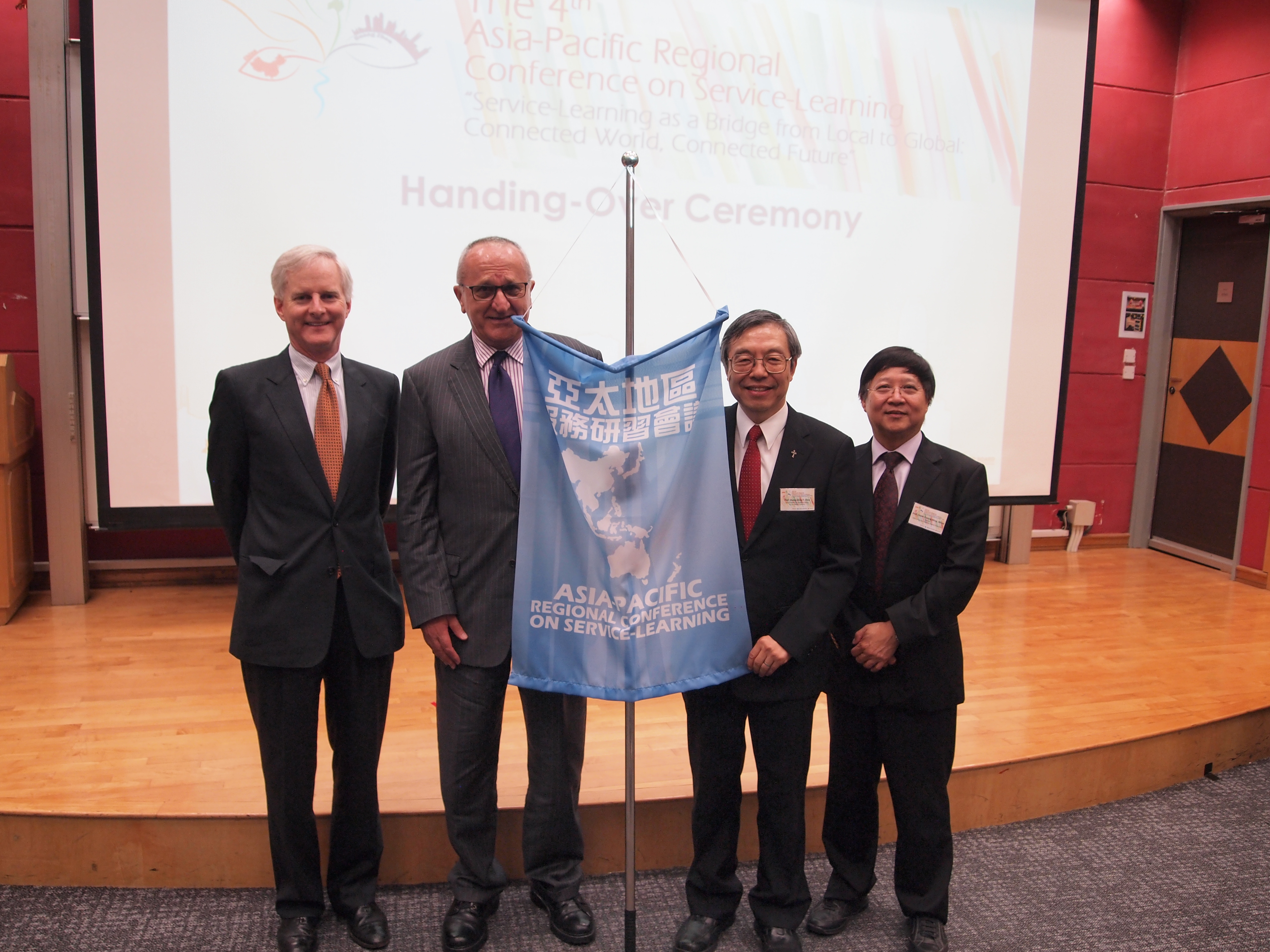Location
MD204, Paul Cardinal Shen Medical Building, Fu Jen University
Start Date
28-5-2015 4:30 PM
End Date
28-5-2015 5:40 PM
Description
My paper discusses the research findings of my project on service-learning, social activism, sign language translators and Translation Studies pedagogy.
Since August 2013, I have been working closely with two NGOs who care for deaf people in Hong Kong. My students served those NGOs as language and translation major. The outcomes of their services include a short film, translated sign language textbook, website materials, and subtitles of films for Deaf Film Festivals in Hong Kong. Pedagogically, they have found service-learning tremendously helpful for them to better acquire the subject knowledge of Translation Studies. It has also broadened their social awareness as well as career horizon. From the collected empirical data, I will argue that service-learning has made substantial difference for my students.
Service-learning has also empowered my research capacity. It inspires me to embark on a new research frontier, namely the history and status quo of sign language translators of Hong Kong. This is a ground-breaking attempt both in fields of Deaf Studies and Translation Studies. Blessed with enthusiastic support from local deaf communities, sign translators and activists, I have conducted over a dozen in-depth interviews with veteran sign translators. Had it not been my first interest in service-learning, my research profile wouldn't have been so enriched.
The recent "Occupy Central" social movement in Hong Kong provides timely evidence of the validity of my research on social activism and sign translation. Activist-translators have played a pivotal role in assisting deaf people to take part in the Occupy movement for over two months. Thanks to dedicated, conscientious sign translators, deaf people are able to "voice" their concerns for social justice, get informed and educated of the subject matter, and be involved in various acts of resistance.
Based on the various perspectives mentioned above, my paper discusses how service-learning opens the door for translation students as well as the researcher to understand, and participate in social issues. The benefits of service-learning for teaching, learning and research are complex and multifaceted. In the very least, my paper shows how service-learning greatly facilitates our critical reflection on identity, marginality of sign language and deafness, social activism, and politics of translation.
Recommended Citation
Chan, R. (2015, May). Service-learning and social activism: A case of sign language translators in Hong Kong. Paper presented at the 5th Asia-Pacific Regional Conference on Service-Learning: Love Journey: Community Engagement through Service-Learning, Fu Jen Catholic University, Taiwan.
Included in
Service-learning and social activism : a case of sign language translators in Hong Kong
MD204, Paul Cardinal Shen Medical Building, Fu Jen University
My paper discusses the research findings of my project on service-learning, social activism, sign language translators and Translation Studies pedagogy.
Since August 2013, I have been working closely with two NGOs who care for deaf people in Hong Kong. My students served those NGOs as language and translation major. The outcomes of their services include a short film, translated sign language textbook, website materials, and subtitles of films for Deaf Film Festivals in Hong Kong. Pedagogically, they have found service-learning tremendously helpful for them to better acquire the subject knowledge of Translation Studies. It has also broadened their social awareness as well as career horizon. From the collected empirical data, I will argue that service-learning has made substantial difference for my students.
Service-learning has also empowered my research capacity. It inspires me to embark on a new research frontier, namely the history and status quo of sign language translators of Hong Kong. This is a ground-breaking attempt both in fields of Deaf Studies and Translation Studies. Blessed with enthusiastic support from local deaf communities, sign translators and activists, I have conducted over a dozen in-depth interviews with veteran sign translators. Had it not been my first interest in service-learning, my research profile wouldn't have been so enriched.
The recent "Occupy Central" social movement in Hong Kong provides timely evidence of the validity of my research on social activism and sign translation. Activist-translators have played a pivotal role in assisting deaf people to take part in the Occupy movement for over two months. Thanks to dedicated, conscientious sign translators, deaf people are able to "voice" their concerns for social justice, get informed and educated of the subject matter, and be involved in various acts of resistance.
Based on the various perspectives mentioned above, my paper discusses how service-learning opens the door for translation students as well as the researcher to understand, and participate in social issues. The benefits of service-learning for teaching, learning and research are complex and multifaceted. In the very least, my paper shows how service-learning greatly facilitates our critical reflection on identity, marginality of sign language and deafness, social activism, and politics of translation.
